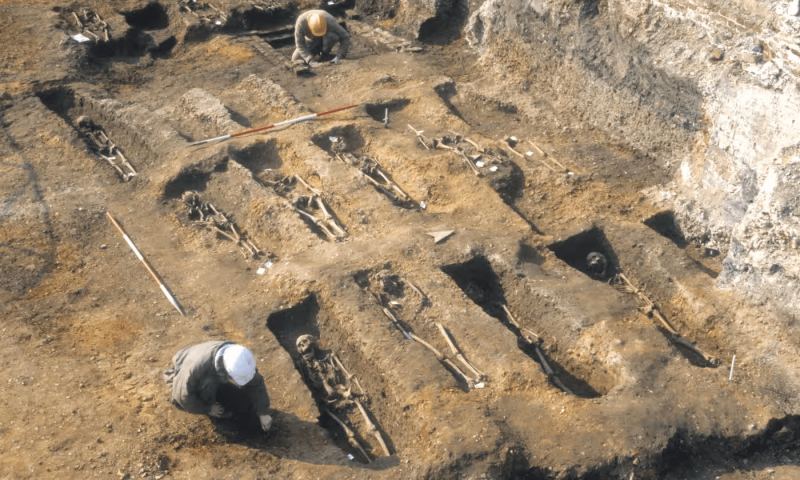The Black Death struck Cambridge, England, in 1349. The bodies piled up so fast — up to six in ten people died in Europe — that gravediggers struggled to keep up, and many remains wound up in mass burials.
Despite its heavy toll, this wave of bubonic plague doesn’t seem to have had a lasting impact on the genomes of the people of Cambridge, suggests a 17 January study in Science Advances.
“Because it’s such a devastating event, people naturally expect it will leave some genetic signature,” says Ruoyun Hui, a population geneticist at the University of Cambridge, UK, who co-led the latest study. “We didn’t find much evidence supporting adaptation of immune responses.”
Ultimately, the debate is about timescales. “Personally, I think that a single epidemic is unlikely to make much difference,” says [population geneticist Iain] Mathieson, “but repeated epidemics and pandemics certainly could.”
Firm answers on the Black Death’s impact — or that of any past disease outbreak — will require thousands of ancient-human genomes and maybe more, researchers agree. “I don’t think it’s going to be resolved in a definitive manner that pleases everyone one until we reach much, much larger sample sizes,” says [human population geneticist Luis] Barreiro.































